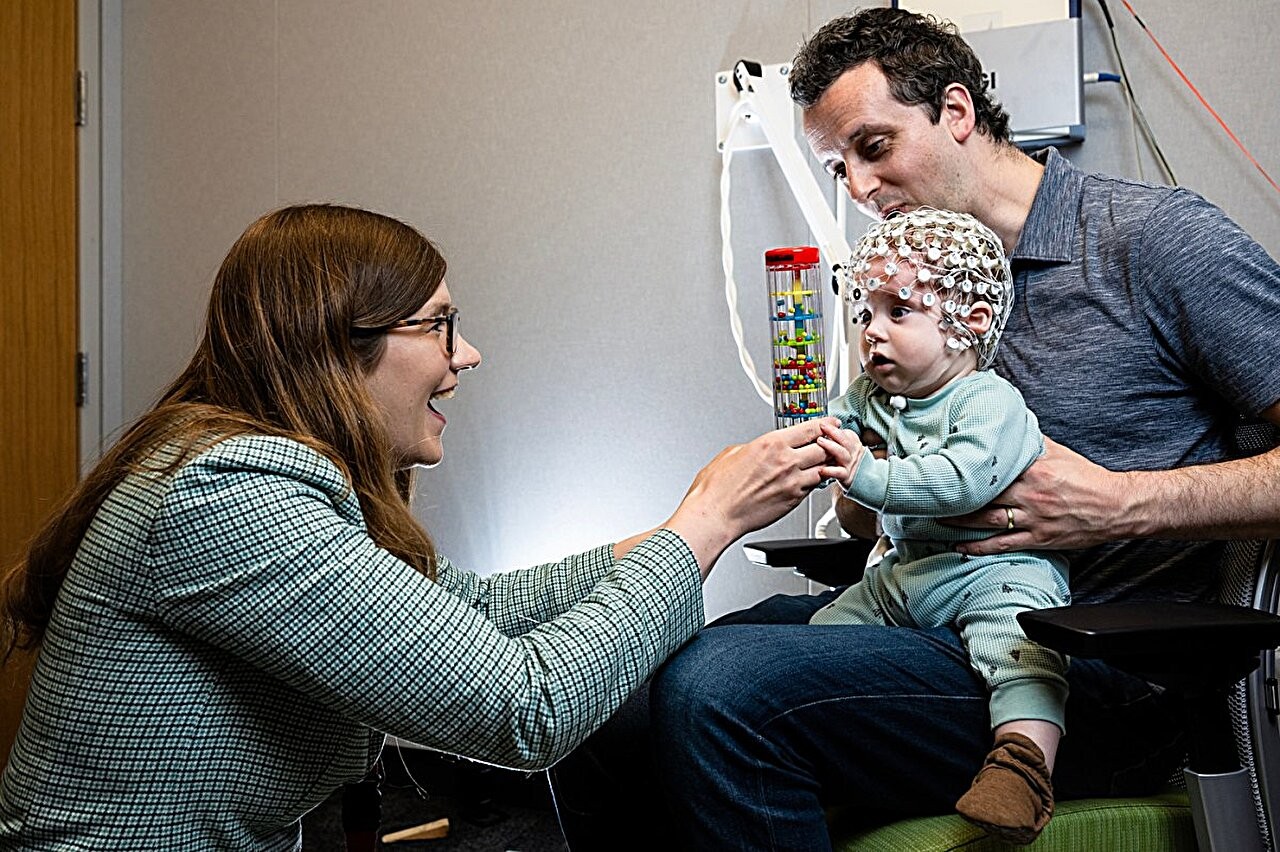
Babies' brains are incredible learning machines, absorbing information at a staggering rate. Now, groundbreaking research from Northeastern University suggests that predictable caregiving can supercharge this innate ability, making infant brains even more receptive to learning and development.
The study, led by a team of neuroscientists and developmental psychologists, explored how caregiver consistency impacts brain plasticity in infants aged 3 to 18 months. Their findings offer compelling evidence that regular, dependable interactions with caregivers can enhance a baby's cognitive growth.
Dr. Sarah Chen, lead researcher on the project, explains: "We've long known that infant brains are highly adaptable. What our research shows is that we can actually boost this adaptability through simple, consistent caregiving practices."
The team used advanced neuroimaging techniques to observe brain activity in infants as they interacted with caregivers. They found that babies exposed to predictable caregiving routines showed increased neural connectivity and more robust responses to stimuli.
What does this mean for parents and caregivers? The research suggests that establishing regular routines and consistently responding to an infant's needs can have a profound impact on their brain development. This doesn't necessarily mean rigid schedules, but rather a pattern of reliable and attentive care.
"It's about creating a sense of security and predictability for the baby," Dr. Chen notes. "When infants can anticipate their needs being met, it frees up cognitive resources for learning and exploration."
The study also highlighted the importance of quality face-to-face interactions. Babies whose caregivers engaged in frequent eye contact, responsive vocalizations, and gentle touch showed the most significant increases in brain plasticity.
These findings have implications beyond individual families. Policymakers and childcare providers may need to reconsider how to best support early childhood development, potentially emphasizing consistency and responsiveness in caregiving practices.
As we continue to unravel the mysteries of infant brain development, this research underscores the profound impact that nurturing, predictable care can have on our youngest learners. By creating environments rich in consistent, attentive caregiving, we may be able to unlock even more of the remarkable potential within every baby's developing brain.